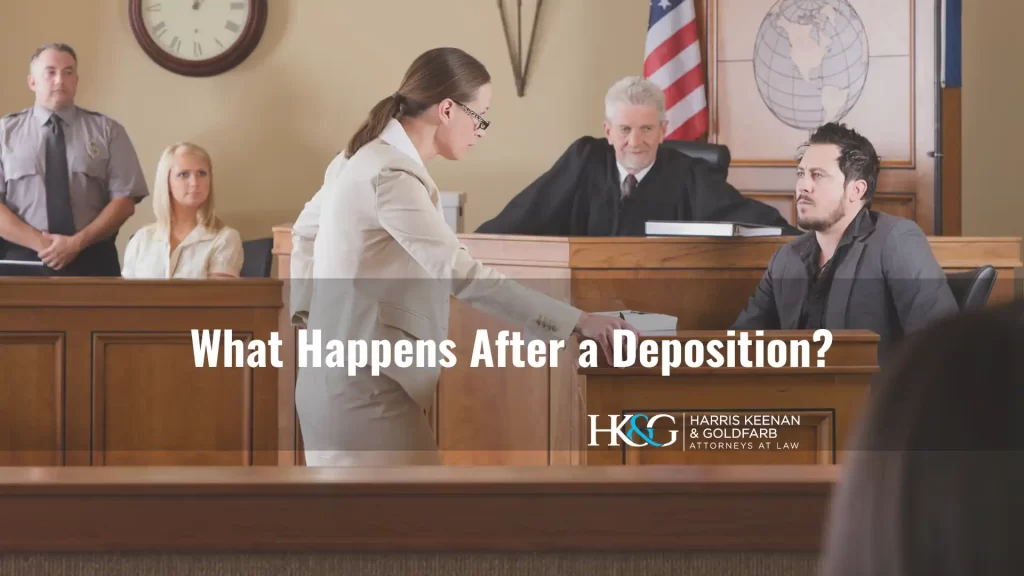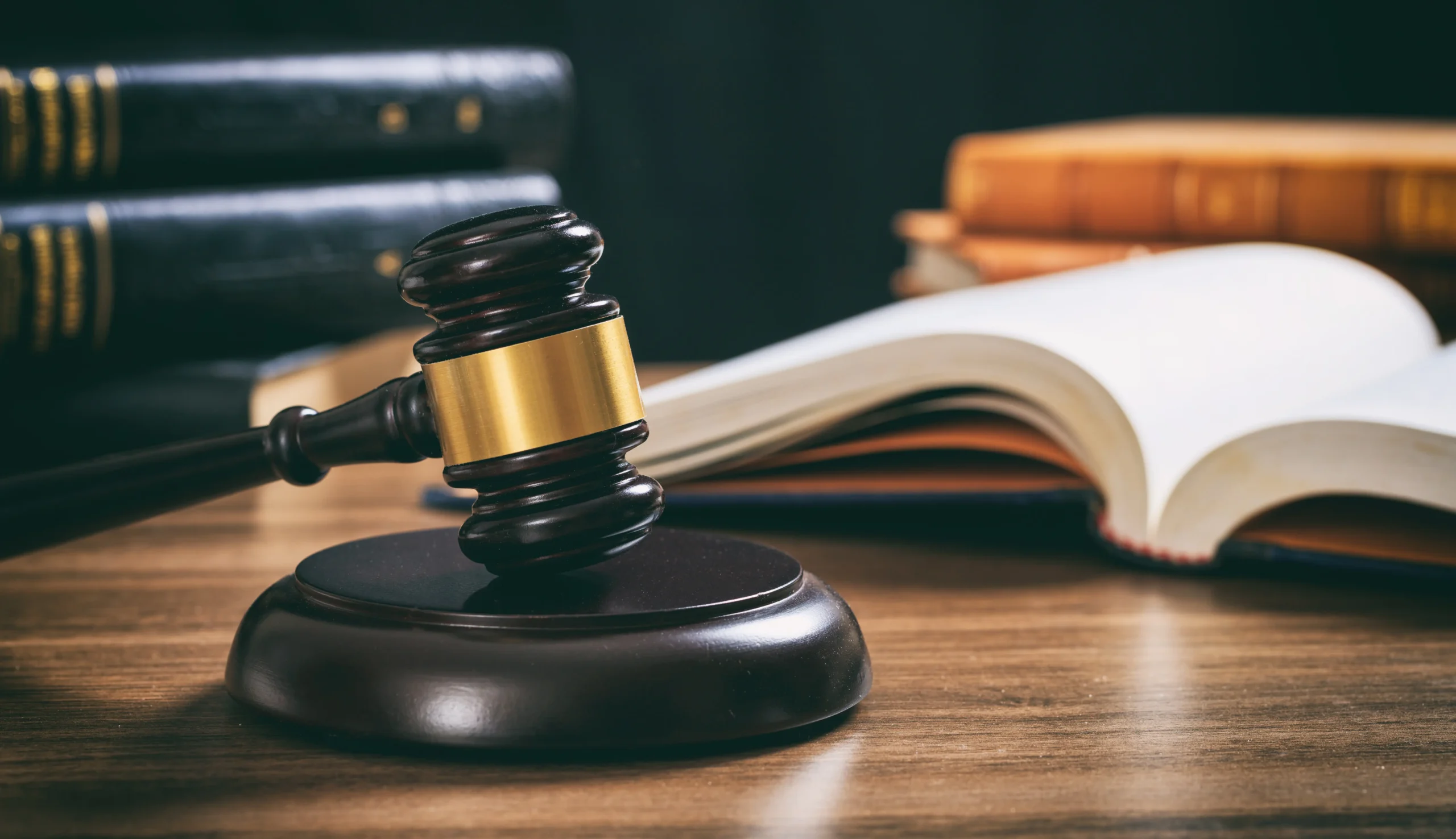A Brooklyn jury awarded Mr. Vargas $17.5 million for the City of New York’s violation of his civil rights for failing to provide him medical care while in custody. The jury found that the police officers involved failed to provide the necessary medical treatment and awarded $17.5 million to Mr. Vargas.
Recommended Articles
Categories
- Accidents
- After an Accident
- Compensation
- Firm News
- Insurance Claims
- Lawsuits
- New York Car Accident Resources
- New York Medical Malpractice Resources
- New York Motorcycle Accident Resources
- New York Nursing Home Injury & Abuse Resources
- New York Truck Accident Resources
- Personal Injury
- Workplace Injury
Practice Areas
Get A Free Case Evaluation
What Happens After a Deposition?
 Personal injury lawsuits aim to compensate individuals who have suffered injuries due to someone else’s negligence or wrongful behavior. One crucial stage of such a lawsuit is the deposition, where parties provide sworn testimonies under oath. In this blog post, the legal team at Harris Keenan & Goldfarb will explain what happens after a deposition in a personal injury lawsuit and outline two significant milestones: mediation and settlement.
Personal injury lawsuits aim to compensate individuals who have suffered injuries due to someone else’s negligence or wrongful behavior. One crucial stage of such a lawsuit is the deposition, where parties provide sworn testimonies under oath. In this blog post, the legal team at Harris Keenan & Goldfarb will explain what happens after a deposition in a personal injury lawsuit and outline two significant milestones: mediation and settlement.
The Deposition Process
Before discussing what happens after a deposition, let’s briefly review what a deposition entails. A deposition is a pre-trial procedure where parties involved in a lawsuit provide oral testimony, under oath, in the presence of attorneys. It serves to gather information, establish facts, and assess the credibility of witnesses. The plaintiff (injured party) and the defendant may be deposed, as well as any relevant witnesses.
What Happens After a Deposition?
Once the deposition phase is over, the lawsuit moves forward to subsequent stages. The court manages the case, ensures procedural fairness, and maintains the legal system’s integrity. Attorneys for both parties play an active role in navigating the post-deposition phase.
Review and Analysis of the Deposition
Following the deposition, attorneys meticulously review the transcripts and evidence presented during the testimony. They assess the strengths and weaknesses of their respective cases based on the information obtained. This review process helps shape the legal strategies attorneys use moving forward, enabling them to identify areas that need further investigation or clarification.
How Long After a Deposition is Mediation
Mediation, an alternative dispute resolution method, often follows the deposition stage. Mediation involves a neutral third party, the mediator, who facilitates negotiations between the parties to reach a mutually acceptable resolution. The timing of mediation can vary depending on the court’s schedule, the complexity of the case, and the availability of all parties involved. It could occur within a few weeks to a few months after the deposition.
Mediation allows both parties to discuss their positions, present evidence, and engage in open dialogue with the mediator’s guidance. The goal is to find a middle ground and avoid the lengthy and costly process of a trial. If successful, mediation can lead to a settlement that satisfies all parties involved.
How Long After a Deposition is a Settlement
Settlement negotiations may occur at various stages of the legal process, and they can also occur after the deposition. The timing of settlement discussions depends on several factors, including the outcome of the deposition, the strength of the evidence, and the willingness of the parties to negotiate.
The deposition plays a crucial role in settlement discussions. The information and testimonies obtained during the deposition can significantly impact each party’s bargaining position. Attorneys use this information to assess the case’s strengths and weaknesses and determine the appropriate settlement value. The timing of a settlement after the deposition can range from weeks to several months, depending on the complexity of the case and the willingness of the parties to negotiate.
Settling brings closure to the legal process, allowing the injured party to receive compensation for their injuries and losses without proceeding to trial. It offers a faster resolution and often avoids the uncertainties associated with litigation.
The Importance of Legal Representation
 Navigating the post-deposition phase and the subsequent stages of a personal injury lawsuit can be overwhelming for individuals without legal expertise. It is crucial to seek the guidance of an experienced personal injury attorney.
Navigating the post-deposition phase and the subsequent stages of a personal injury lawsuit can be overwhelming for individuals without legal expertise. It is crucial to seek the guidance of an experienced personal injury attorney.
A knowledgeable attorney can provide valuable advice and representation throughout the process. They can help you interpret the deposition’s impact on your case, guide you through mediation and settlement negotiations, and protect your rights and interests. Their advice can increase your chances of a favorable outcome.
Contact Our Personal Injury Attorneys Today
The deposition is a significant milestone in a personal injury lawsuit, marking the transition to subsequent stages of the legal process. After a deposition, the focus shifts to mediation and settlement discussions. Mediation provides an opportunity for parties to resolve their disputes with the help of a mediator. On the other hand, settlement discussions aim to reach a mutually agreeable resolution that avoids the need for a trial.
Throughout this process, it is essential to have competent legal representation. An experienced personal injury attorney from Harris Keenan & Goldfarb can guide you through the complexities of post-deposition proceedings, protect your rights, and help you pursue the compensation you deserve. Our trusted attorneys will be your advocate throughout this challenging time.
Contact our office today by calling or filling out our online form.
Over $500 Million in Verdicts and Settlements
Our track record showcases over $500 million won for our clients. Each victory underlines our commitment to justice and client care. Explore our impact, case by case.
What Our Clients Say About Us

Thank you so much for recovering my injury case from 9 years ago that was dead in the water since the company went bankrupt and there was nothing else to do. Miraculously, you resurrected my case and was able to get a settlement which completed for me the horrific accident and the suffering I endured because of it. HK&G makes miracles happen by getting the job done and seeing that justice is served. Thank you so much.
Susan C.
Jason Steinberg is a great lawyer Donna and Terry were always very professional and kind I will always highly suggest this law firm and team to anyone out their. Thank you again to everyone at this incredible Firm!!!
They got me Justice, and achieved a substantial outcome for my case.
I am very impressed, and thankful for their outstanding performance on my behalf.
I am very pleased, and significantly satisfied with their representation.
‐-
Sherylon Wilkins
6 years ago I had a slip and fall accident at my employers place of business. I reached out to them because I knew that I was being wrongfully treated. They took care of the case, restored my self confidence, and brought so much peace to my problem riddled life.
I can recommend without a shadow of a doubt the services of Harris, Keenan & Goldfarb to anyone who is in need of someone who will have your back!
Frequently Asked Questions
Common questions that prospective clients have about personal injury claims include:
Do I need an attorney?
When you have suffered an injury, it can be difficult to know what to do next. If the injury was caused by someone else’s negligence, you may be entitled to compensation. However, filing a personal injury claim can be a complex and time-consuming process. An experienced attorney can help you navigate the legal system and fight for the maximum possible compensation.
How do I know I have a case?
When should I contact an attorney?
How do I determine which one to choose?
Once I hire an attorney, what should I expect?
Recent News
Find out how to move forward after an unexpected event with our short, helpful articles. We share simple advice that can make a big difference in tough times.
Contact Us
Monday - Friday: 9am - 6pm









































